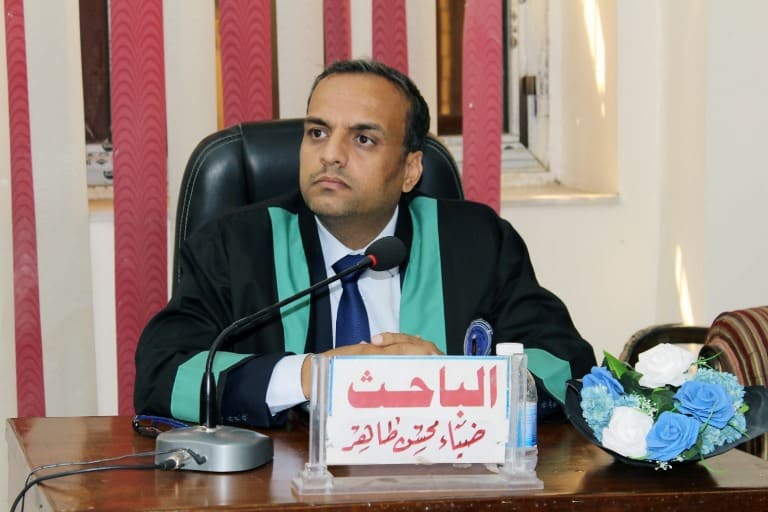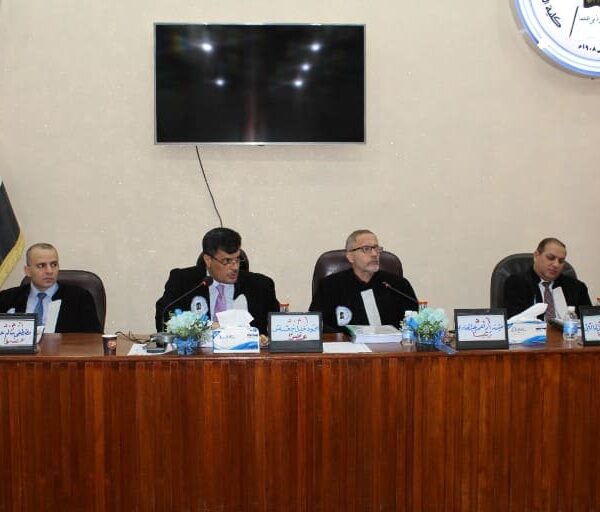The College of Law at the University of Baghdad discussed a master’s thesis in the international law branch of student Diaa Mohsen Taher, tagged with (the problems of the common rivers of Iraq with neighboring countries, a study in international law) on Tuesday 26/7/2022 in the conference hall of the college.
The discussion committee consisted of Prof. Dr. Haider Adham Abd al-Hadi as Chairman, Assistant Professor Dr. Mahmoud Khalil Jaafar as a member, Assistant Professor Dr. Mustafa Salem Abed as a member, and Prof. Dr. Hadi Naim al-Malki as a member and supervisor.
This thesis aims to study the international legal system that regulates the uses of the waters of international rivers, including the 1997 United Nations Convention on the Exploitation of International Watercourses for Non-Navigational Purposes, and to extrapolate the opinions of jurists and international judicial rulings from the issue of joint selection of the waters of international rivers, and make it a criterion for balancing between The legal position of Iraq and the positions of other riparian countries regarding the problems of water quotas between them.
The thesis also included three chapters, the first of which dealt with international rivers and the rules regulating the use of their waters, the second chapter dealt with water disputes between Iraq on the one hand and Turkey and Syria on the other, and the third chapter dealt with the problems of the common border rivers between Iraq and Iran.
The most important recommendations of the study are the need for the watercourse countries to take into account the rights of other riparian countries when exploiting the watercourse. Iraq should work by all diplomatic means to persuade (Turkey, Syria and Iran) to enter into new discussions in order to sign a protocol or an international covenant document to redefine the water rights of countries The riparian’s on the Tigris and Euphrates rivers in accordance with the international law on this subject, work to solve the outstanding political and security problems with neighboring countries, because the persistence and aggravation of problems will lead these countries to use water as a geopolitical weapon against Iraq.



